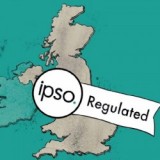 A regional daily said sorry to the mother of a child whose pixelated photograph appeared in a court report.
A regional daily said sorry to the mother of a child whose pixelated photograph appeared in a court report.
The Manchester Evening News apologised to the woman after the picture’s publication prompted her to complain to the press watchdog.
The story in question had reported on the conviction of a man for various violent, antisocial and sexual offences, and included two photos of the defendant with a young child whose face had been pixelated.
Complaining to the Independent Press Standards Organisation Clause 2 (Privacy), Clause 6 (Children), and Clause 9 (Reporting of crime) of the Editors’ Code of Practice, the unnamed woman said friends and family were able to identify her child despite the pixelation.
She added that the identification of her child in association with the man, in the context of a court report into several serious convictions, caused her much distress.
The MEN apologised for any distress caused but did not accept that there was any breach of the Code, saying that it removed the photographs as soon it was contacted by the woman and that it was important to include the photographs to contrast the man’s crimes with his lack of regard for the wellbeing of the young child.
It also noted that the photographs had been taken from an open social media page, and the newspaper had taken steps to pixelate the child’s face.
During IPSO’s investigation, as a gesture of goodwill, the MEN offered to write the woman a private letter of apology, which she said would resolve the matter to her satisfaction.
IPSO therefore discontinued its investigation, and the full resolution statement can be read here.
Other recent IPSO cases involving regional newspapers include:
Aitchison v Glasgow Times
Ross Aitchison complained under Clause 1 (Accuracy) of the Editors’ Code of Practice over and opinion piece by a Scottish Conservative & Unionist Councillor which was published in the Glasgow Times, which he claimed had not clearly distinguished between comment and fact.
The Times said the article had clearly been labelled as a comment piece, and that the caption of the picture made clear that it had been written by a Conservative Councillor.
The complaint was resolved after the Times offered to publish a correction making clear the councillor had been expressing his personal view.
The full resolution statement can be read here.
A woman v Border Counties Advertizer
A woman complained under Clause 1 (Accuracy), Clause 2 (Privacy) and Clause 6 (Children) about a Border Counties Advertizer story on a councillor who had received online abuse, and his daughter who was also the recipient of abuse.
The woman, who is the mother of the councillor’s daughter, said she had been present during the interview with the councillor, and he had not mentioned the term “mental health”.
She also believed that the phrase “affecting my daughter’s mental health” misleadingly suggested that her daughter had a mental health condition.
The Advertizer said it had accurately reported the interview and had notes which referred to mental health, adding that someone’s mental health being affected did not give the impression that that person had a mental health condition.
It offered to publish a clarification, but the woman said she was happy for no statement to be published due to the lapse of time and the fact she did not want the claim to be printed again.
The full resolution statement can be read here.





 Follow HTFP on Twitter
Follow HTFP on Twitter